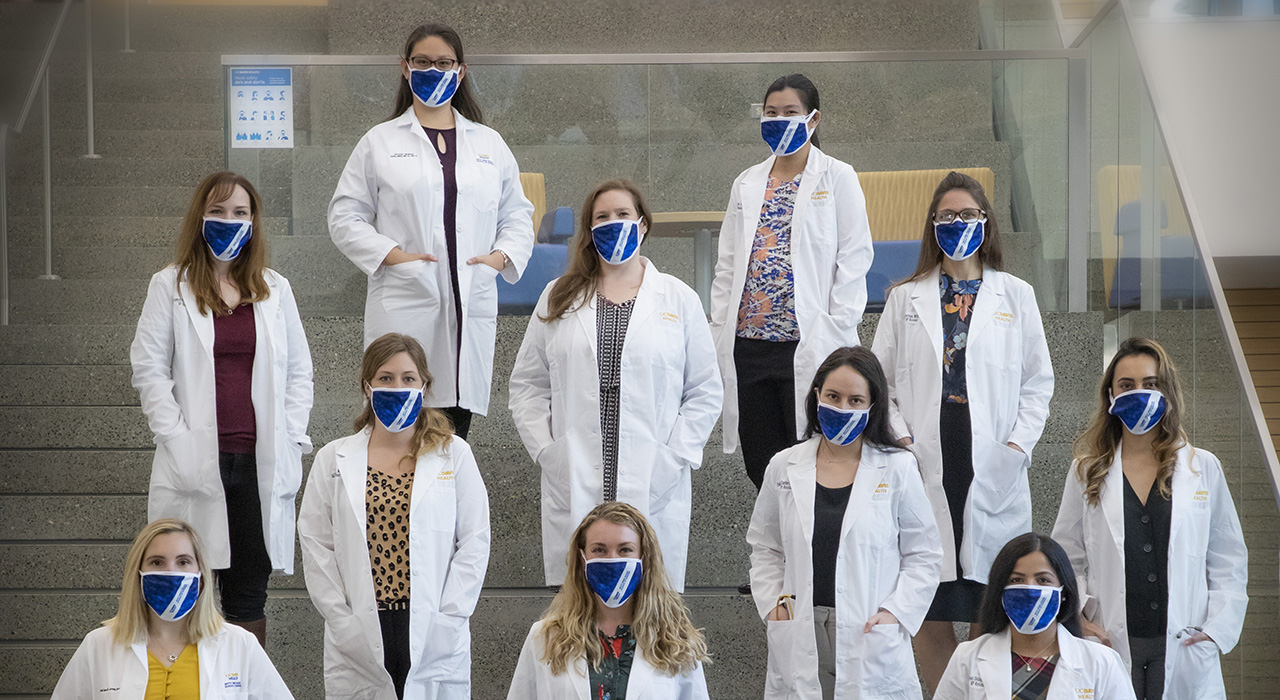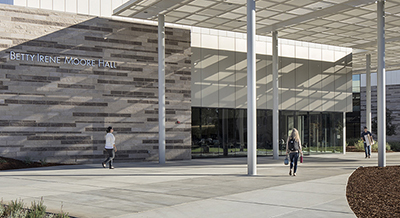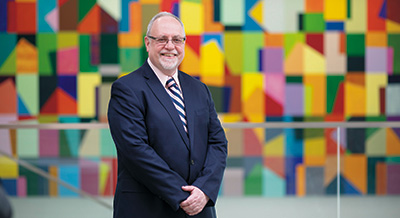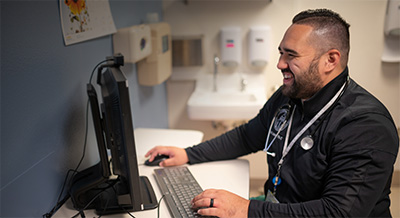When Sara Delao graduated from the Betty Irene Moore School of Nursing at UC Davis, she felt grateful for her education and excited for the future. But before she took a new job as a family nurse practitioner (F.N.P.), she thought something was missing.
“As I got ready to apply for positions and launch my career, despite my incredible education, I still felt like I needed some extra mentorship and guidance,” said Delao, a graduate of the master’s degree F.N.P. and residency programs. “As I transitioned from my role as an R.N. to an advanced practice provider, I was looking for a fellowship to help me transition to practice.”
Delao found exactly what she was looking for in the Advanced Nurse Practitioner Primary care Residency in Addiction, Chronic care, Telehealth, Improvement science, Collaboration and Equity (Advanced NP-PRACTICE). This summer, she and 10 other nurse practitioners (N.P.s) completed their residency as the inaugural group in the program.
“I don’t think I would have been ready to tackle family medicine as a new grad nurse practitioner on my own. It would have been really difficult,” explained residency graduate Claudia Canturin. “The slow transition and ramping up of patients really made a difference in how I practice.”
The program is a collaboration between the School of Nursing, UC Davis Health and affiliated centers and clinics, as well as multiple Federally Qualified Health Clinics (FQHCs). FQHCs are community-based health care providers that receive funds from the Health Resources and Services Administration to provide primary care services in underserved areas.
The end goal: to support new N.P.s as they move from their graduate-degree program into the workforce and expand the number of advanced practice providers who can provide high-quality primary care in under-resourced areas.
“We could not have asked for a better group of nurse practitioners as our inaugural cohort,” said Deb Bakerjian, Ph.D., A.P.R.N., F.A.A.N., F.A.A.N.P., F.G.S.A., residency program director and School of Nursing professor. “Despite the challenges of the pandemic, this group of professionals fully engaged in the educational and clinical activities, consistently stepped up to provide feedback on the program, and worked collaboratively with the staff in their clinics.”
Meeting social needs
The program also advances a goal of the 2019 report from the California Future Health Workforce Commission. With a projected shortfall of more than 4,100 primary care clinicians, commissioners called for maximizing the role of nurse practitioners to help fill gaps. They want to increase the number of nurse practitioners from roughly 27,000 to 44,000 by 2028.
This inaugural group started the residency program two months into the coronavirus pandemic. Program leaders quickly adjusted. Residents spent the entire 12 months seeing their own panel of patients in clinics from Grass Valley and Marysville to midtown Sacramento and at the Sacramento County Public Health Center.
“It has been my goal for many years to work with the underserved to promote prevention,” said resident graduate Ali Berkeyheiser. “If there’s something you’re not comfortable doing, usually you can simply refer the patient to a specialist. But when working with the underserved that’s challenging. This residency program has made it so that I can safely give good care.”
Each resident received tailored specialty rotations, based on areas in which they identified needing additional education and experience. Those areas included pain management, advanced wound care and cardiology. They also benefitted from weekly practice discussions received constant mentorship, and participated in quarterly specialty lectures and skills training. Program organizers learned a few things, too.
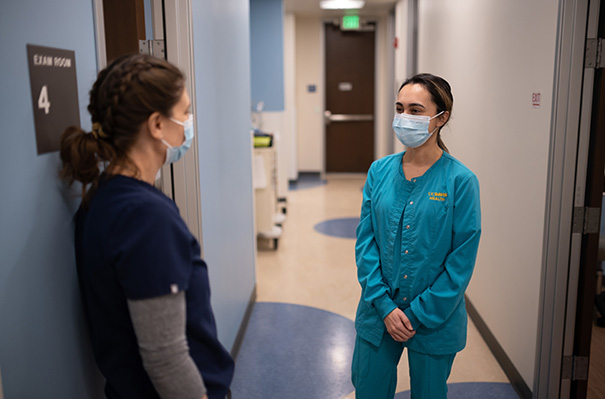
“We realized how to better deliver our virtual sessions. We also plan to refine our onboarding to get residents into their clinics sooner,” Bakerjian said.
Mutual pandemic journey
While the educational experience achieved the goals of each resident, the comradery they experienced among each other was an unexpected bonus.
“We were able to get through this pandemic together and hone our skills. We developed friendships that will certainly last a lifetime,” said residency graduate Alex Malliaris Peck.
“I’ll look back fondly on the hours I spent on the phone this past year… talking, crying, complaining and laughing about this wild adventure that we all volunteered for,” added residency graduate Jessamyn Phillips. “I am finishing this year better equipped to step into practice as a nurse practitioner than I was 365 days ago.”
Phillips is one of at least two residents who accepted positions at the clinics where they worked during the program. This, according to leaders in the FQHCs, is a major step toward filling the need of qualified providers.
Residency graduate Crystal Barajas said, “It has been an honor to serve the community of Sacramento, especially our immigrant and Spanish-speaking populations.”
The next class of 10 residents begins the program in October. They will work in clinics ranging from Grass Valley to Fresno.

